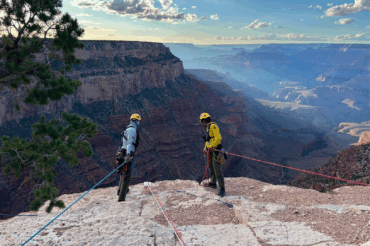Three $5,000 awards complement the nation’s first outdoor MBA program, launched this year in Colorado.
In the last few years, the outdoor industry has gained traction as a legitimate force in American society. First, its economic impacts were quantified at nearly $900 billion. Then it became a political flashpoint as big-name brands publicly lobbied — and criticized — the government for its stance on public lands.
And most recently the education sector has taken notice, with universities adding outdoors curriculum to both undergraduate and graduate-level coursework. Now, Colorado’s outdoor recreation office, Governor John Hickenlooper, and Western Colorado University are teaming up to take another step, launching the first scholarships for WCU’s Outdoor Industry MBA.
Through January, students can apply for one of three $5,000 scholarships. The scholarships will be funded by the Colorado Outdoor Recreation Industry Office through a corporate donor and are open to all Colorado residents.
“These scholarships provide the critical access for individuals interested in contributing to Colorado’s vibrant outdoor recreation industry but lack the resources to do so,” said Luis Benitez, director of the Colorado Outdoor Recreation Industry Office.
Outdoor Industry MBA
WCU launched the Outdoor Industry MBA this year. The university lists the two-year program tuition at $20,887 per year. That comes out to $1,160.40 per credit hour, with a total of 36 credits.
“The program is designed for people in the outdoors industry looking for knowledge and validation of a master’s degree,” said Dr. Peter Sherman, dean of the School of Business at Western State Colorado University.
He explained that those seeking to move up the company ladder in an outdoors brand but who lack the education will benefit from the degree. For those “bumping up against walls to a promotion,” the degree program offers a solution.
“We’ll be the first program designed for the outdoors industry,” Sherman said, adding that the program will have a “hybrid” workload that allows working professionals to attend.
Students will take significant portions of coursework online in virtual classrooms. But it won’t be 100 percent digital. Students must meet a “residency requirement,” meaning they come to campus five weekends per year.
The beginning and end of the program also include an “immersion experience” on the campus. During the final year, employed students will work on a project for their company as a capstone, supervised by a Ph.D. in the field.
The program targets students with an undergraduate degree, likely with a minimum 3.0 GPA. But the most important qualification is industry experience (3-5 years) or other relevant experience.









